While the costs of water will fluctuate between each city, it’s not one that we really have a choice of paying or not. But when you notice that it’s outrageously high, obviously something must be wrong.
So instead of calling your water company about the possible error, check to see if you have an internal problem first. Here’s a list of commons reasons for a high water bill as well as what you can do to cut off the source.
1. Leaky Appliances and Faucets
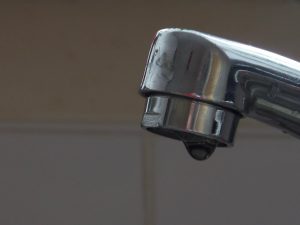
Leaky faucets and fixtures are unfortunately one of the most common causes of high water bills. Keep in mind that when the water is left leaking for extended periods of time, more water is wasted, and you can expect to find a high bill. According to the EPA, “a leaking faucet dripping at the rate of one drop per second will waste over 3,000 gallons in a year!” Can you imagine what the cost would be when you’re not even using it?
On the other hand, it’s an easy problem to fix. First locate where the water is coming from. In most cases of a leaking faucet, the rubber washer in the faucet handle needs to be replaced. To do this, turn off the water supply to the faucet, remove the handle and bad washer, and replace it with a new one.
2. Faulty/Leaking Toilets
Did you know that toilets use more water than any other indoor appliance? According to the EPA, “The toilet is responsible for almost 27% of the indoor water use in the average American household.” That’s even more than the shower.
If you do that math, a leaky toilet can use up to 200 gallons of water in one day, or 1,400 gallons each week! This amount will constitute the need for a water damage restoration specialist, in addition to a plumber, to restore the building materials and prevent mold growth.
But many leaky toilets can go unnoticed for extended periods of time, hiding underneath the flooring, in the ceiling, and beneath the walls. So here’s how to check if this is the problem:
- Using Dye: If you have some food coloring or a dye tablet, remove the lid from the toilet tank, and add a few drops. Wait about 15-20 minutes before checking the bowl for dye. If you find it here, then there is a leak that’s allowing water to flow into the bowl.
- Listening for Water: Although not as accurate, this test will work if you don’t have dye or food coloring. If you walk up to the toilet and listen for a strange hissing noise, this is an indicator of a leak and you may want to check further or call a plumber.
While some cases will be more extensive (and expensive), most will only have a bad flapper in the tank. Most hardware and home improvement stores have them and replacing it should be simple.
3. Underground Pipe Leaks
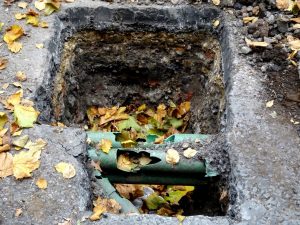
Hopefully you will never have to deal with an underground pipe leak. They are not only difficult but are much more expensive to fix than a leaky toilet, appliance, or faucet. But there is not much you can do to prevent them other than frequent monitoring, since they are all caused by outside sources, including animal activity, seismic activity, pressure from tree roots, and the age of the pipe.
But once the leak starts, the biggest problem is digging it up, finding the leak, and repairing it.
There is also the irrigation line to keep in mind that can also pose problems; however, they are not nearly as severe. You would be able to tell the difference by the extra amount on your water bill.
To address an underground pipe leak, don’t hesitate to contact a professional. This work will require professional tools and equipment as well as training and experience to repair the leak properly.
Finally, be sure to check your basement, if you have one, for water damage as water can easily travel underground to find and seep its way into the foundation. If you notice any water spots on the carpet, call a water damage cleanup company right away.
4. Irrigation Problems
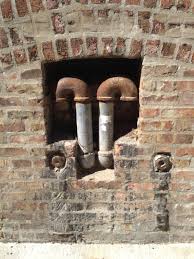
Many homes and businesses have irrigation systems for their landscaping – it helps keep the plants watered and healthy. But a loose joint or crack in the line can present a number of problems, even when the system is off.
Because the irrigation lines are usually buried, the leak will be difficult to spot, but not impossible. To find them, scan your lawn for damp patches of grass or areas that are “greener” than the rest. They can also be similar to those found in underground pipes, but again, irrigation leaks shouldn’t be as severe.
If you aren’t able to spot the leak or are unable to fix it yourself, calling a professional plumber would be the first step to take.
5. Outdated and Old Appliances and Fixtures
If you live or work in an older home or building, many still use the same plumbing system they did since they were first built. But thanks to technology and innovation, water fixtures have been made much more efficient, such as water-saving toilets, shower heads, and new-model aerators for faucets.
While there is not much you can do if you currently own the house or building, other than to save money and replace the pipes and old fixtures, ask the realtor about the plumbing system and its efficiency. They would be able to tell you whether or not you can expect high water bills.
You can also check the manufacturing date and labeling on the property’s showerheads, toilets, faucets, and other water-related appliances to ensure they are updated, or replace them if not.
6. Changes in Amount of Water Used
Thankfully, this shouldn’t be too much of a problem, but small changes in the amount of water used each day can result in big changes on the bill. The 2 most common reasons for a high water bill, other than a leak, would be that someone has moved in or a change in the season.
While there may not be much you can do to change these new habits, other than making the new guest or family member pay for the water they used, you can plan ahead. After every season change or if someone has moved in, make sure to save a little more money each month to avoid surprises on your next bill.
And surely you will know that installing/buying a swimming pool will result in dramatic increases in the water bill. But you can still save on these costs by covering the pool when not using it to prevent the water from evaporating.
7. Adding Water-Related Systems
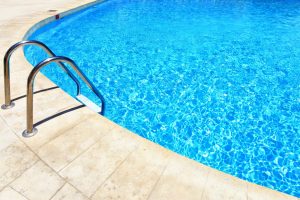
If you have recently purchased a new appliance or system that uses a lot of water, it would surely explain the reason for a higher bill. This would include the following:
- Washing machines
- Refrigerators
- Water heaters
- Dishwashers
- Sprinkler systems
- Irrigation systems
- Swimming pools
- Freezers
- New piping
Despite investing in these new appliances and systems, there are still ways to lower the cost of each one. Before choosing the appliance, look for something that is more efficient so you won’t be wasting money on wasted water. It may be more expensive upfront, but if you plan to use it long-term, the costs will pay off.
8. Bad Habit of Wasting Water
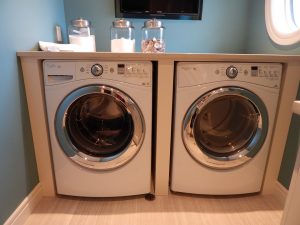
Did you know that there are a number of tips you can follow to reduce the amount of water consumed in your household? Many of us, especially children, do not think about the amount of water we use every day until we see the bill. Here’s what you can do to cut back:
- Use the washing machine for smaller loads rather than filling it up all the way.
- Prevent your lawn from being overwatered or monitor the use of outdoor water-related toys, such as slip-n-slides and swimming pools.
- Use a front-loading, rather than a top-loading washing machine as you will use 200% less water each time when washing your clothes.
- Use the dishwasher instead of washing dishes by hand. When running water from the faucet instead of using the appliance, you use 4-5 times more water.
- Turn off the water while brushing your teeth or shaving. This is an important tip to teach children as early as possible.
- Instead of running warm water over frozen foods, leave them out on the counter or in the fridge before cooking them the same night.
- Avoid long showers. Sure it can be a nice way to relax after a long day at work but it won’t be relaxing to find that they will add to your water bill. If you can keep it under 5 minutes, you will save over 1,000 gallons of water each month!
Who knew that there was so much that can be done to save on a water bill? But even if there is nothing that can be done about some expensive factors, like adding a new member to the household or installing a swimming pool, using the water efficiently can balance them out to a normal bill again (or come close). This way you won’t have to worry about high costs because you wanted to go swimming in your backyard instead of the community pool.
Water Damage Repair
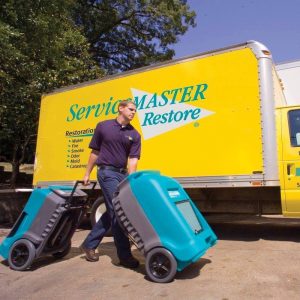
While finding increased costs on your water bill, trying to figure out why can be stressful. But hopefully the problem is an easy fix, like replacing the rubber washer on your faucet or telling your kids to stop messing around in the shower. But in other cases in which you have found a leak, don’t hesitate to address the problem, fix the leak yourself, or call a professional.
Fixing the leak is one thing, but if the water has already spread throughout the walls, flooring, and ceiling, you will need additional help. Calling a water damage restoration company right away can save both time and money when restoring your home or building to its original condition. Finding one that is available 24/7 and is efficient will be the most important factors when looking for a local service.
One such company that comes highly recommended is ServiceMaster. Their professionals are available 24/7 and are both experienced and licensed to handle all aspects of water damage restoration. They will arrive within 2 hours of your first call to remove the excess water from the leak while conducting the initial inspection to develop the best plan to ensure an efficient process. Once they have restored or replaced all building materials, they can work with your insurance company, allowing a seamless claims process. Finally, with professional services and timely work, you can trust that your building materials and water bill will be returned to normal within a timely manner.


